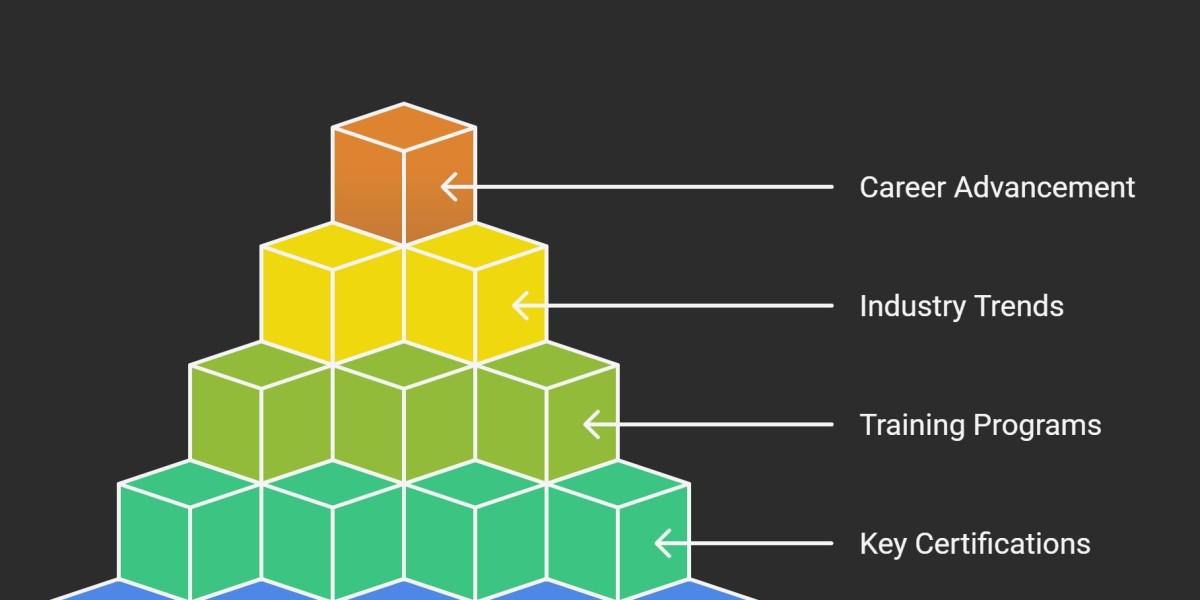The cybersecurity industry has grown into a global battlefield where attackers innovate daily, and defenders must constantly adapt. At the center of this defense are Security Operations Centers (SOCs)—teams of professionals who monitor, detect, and respond to threats in real time. For those aspiring to enter or grow in this critical role, the Cybersecurity Certification Roadmap 2025 provides a structured path to mastering skills, gaining recognition, and advancing careers as SOC analysts and security operations specialists.
Why SOC Analysts Are Vital in 2025
In today’s digital-first world, organizations rely heavily on SOC teams to defend their systems. As cyberattacks become more advanced, ranging from ransomware to AI-driven phishing campaigns, SOC analysts act as the first responders. They investigate alerts, correlate logs, and mitigate threats before they escalate into catastrophic breaches.
By 2025, the SOC analyst role will have transformed from simple monitoring to proactive threat hunting, automation management, and cross-platform security integration. Employers now expect professionals to bring validated skills through certifications, ensuring they can adapt to the changing landscape.
Step 1: Building the Foundation
Before diving into SOC-specific certifications, a strong understanding of cybersecurity basics is essential. Certifications at this stage cover general principles, preparing candidates for specialized SOC skills.
CompTIA Security+ (SY0-701): The most recognized entry-level credential, it introduces risk management, identity security, and incident response basics.
Cisco CCNA (200-301): Networking knowledge is indispensable in SOC roles. CCNA ensures professionals understand how traffic flows through networks and can spot anomalies.
ISC² Certified in Cybersecurity (CC): A newer certification that validates essential knowledge, providing a stepping stone for aspiring SOC professionals.
These foundational certifications establish the groundwork upon which SOC skills can be built.
Step 2: Entry-Level SOC Certifications
For those beginning their SOC careers, entry-level certifications help prove knowledge of monitoring, detection, and response.
CompTIA Cybersecurity Analyst (CySA+): This certification validates skills in threat detection, behavioral analytics, and proactive defense.
Cisco Certified CyberOps Associate: Tailored specifically for SOC roles, it introduces security monitoring, event analysis, and responding to incidents in real-world scenarios.
EC-Council Certified SOC Analyst (CSA): A focused certification that dives deep into log monitoring, SIEM usage, and incident triage.
By 2025, these certifications will remain the go-to entry points for SOC analysts worldwide.
Step 3: Advancing into Threat Hunting & Forensics
Once professionals gain initial experience, intermediate certifications provide advanced skills for SOC success.
GIAC Certified Intrusion Analyst (GCIA): Ideal for those specializing in network traffic analysis, this certification validates intrusion detection and monitoring expertise.
GIAC Certified Forensic Analyst (GCFA): Focused on digital forensics, GCFA equips SOC professionals with the ability to investigate breaches and recover evidence.
CompTIA PenTest+: Though focused on offensive security, this certification helps SOC analysts understand attacker methodologies, making them better defenders.
These certifications align with the evolving role of SOC teams, who must now investigate and anticipate attacks rather than only react to them.
Step 4: Advanced Leadership Certifications
For professionals seeking leadership roles in SOC operations, advanced certifications provide recognition and authority.
Certified Information Systems Security Professional (CISSP): While broader in scope, CISSP demonstrates mastery of security management, compliance, and governance—skills critical for SOC leaders.
GIAC Security Operations Certified (GSOC): One of the latest certifications by GIAC, it focuses on managing and optimizing SOC operations at scale.
Certified Ethical Hacker (CEH): Though offensive in nature, CEH adds value by teaching the tools and tactics SOC teams must defend against.
By 2025, SOC leaders must combine deep technical knowledge with strategic oversight to handle increasingly complex threats.
Real-World Applications of the Roadmap
Consider Daniel, who began with Security+ and Cisco CyberOps Associate. After gaining hands-on SOC experience, he advanced with GCIA and CEH, which prepared him for more proactive roles in threat hunting. Today, he manages a SOC team for a global telecom company.
Another professional, Amira, followed a different route—starting with CCNA, then CSA, and later earning GCFA to specialize in digital forensics. She now works as a senior incident responder, leading forensic investigations for multinational organizations.
Both career paths show the flexibility of the roadmap, proving it can adapt to individual goals while keeping pace with evolving cybersecurity demands.
Challenges SOC Analysts Face in 2025
SOC teams face unique challenges as cyberattacks grow in scale and complexity:
Alert Fatigue: With millions of daily logs, SOC analysts must filter false positives from real threats.
Integration of AI: Analysts must learn to work alongside AI-driven tools, interpreting results and making human-led decisions.
Cloud Security Expansion: SOCs are now tasked with monitoring hybrid and multi-cloud environments, adding complexity to traditional defense models.
These challenges highlight why certifications are vital—they provide structured learning that equips analysts to face these evolving realities.
Future Trends for SOC Roles
The Cybersecurity Certification Roadmap 2025 for SOC analysts reflects trends shaping the future:
Automation and SOAR (Security Orchestration, Automation, and Response): Analysts must master tools that automate repetitive tasks, allowing them to focus on critical incidents.
Zero Trust Security Models: SOC teams increasingly work with identity-driven security frameworks, shifting away from perimeter-based defense.
Cross-Domain Integration: SOCs now collaborate with DevOps, compliance teams, and cloud engineers, requiring professionals with broad certification portfolios.
AI Threat Hunting: By 2025, SOCs are leveraging machine learning models for faster detection. Analysts certified in AI-assisted tools have a competitive advantage.
Preparing with Reliable Resources
Studying for SOC certifications requires more than reading textbooks. Practical labs, SIEM simulations, and incident response exercises are critical for success. Many professionals rely on platforms like Cert Empire for updated exam materials and realistic practice scenarios, ensuring they stay ahead of evolving threats.






